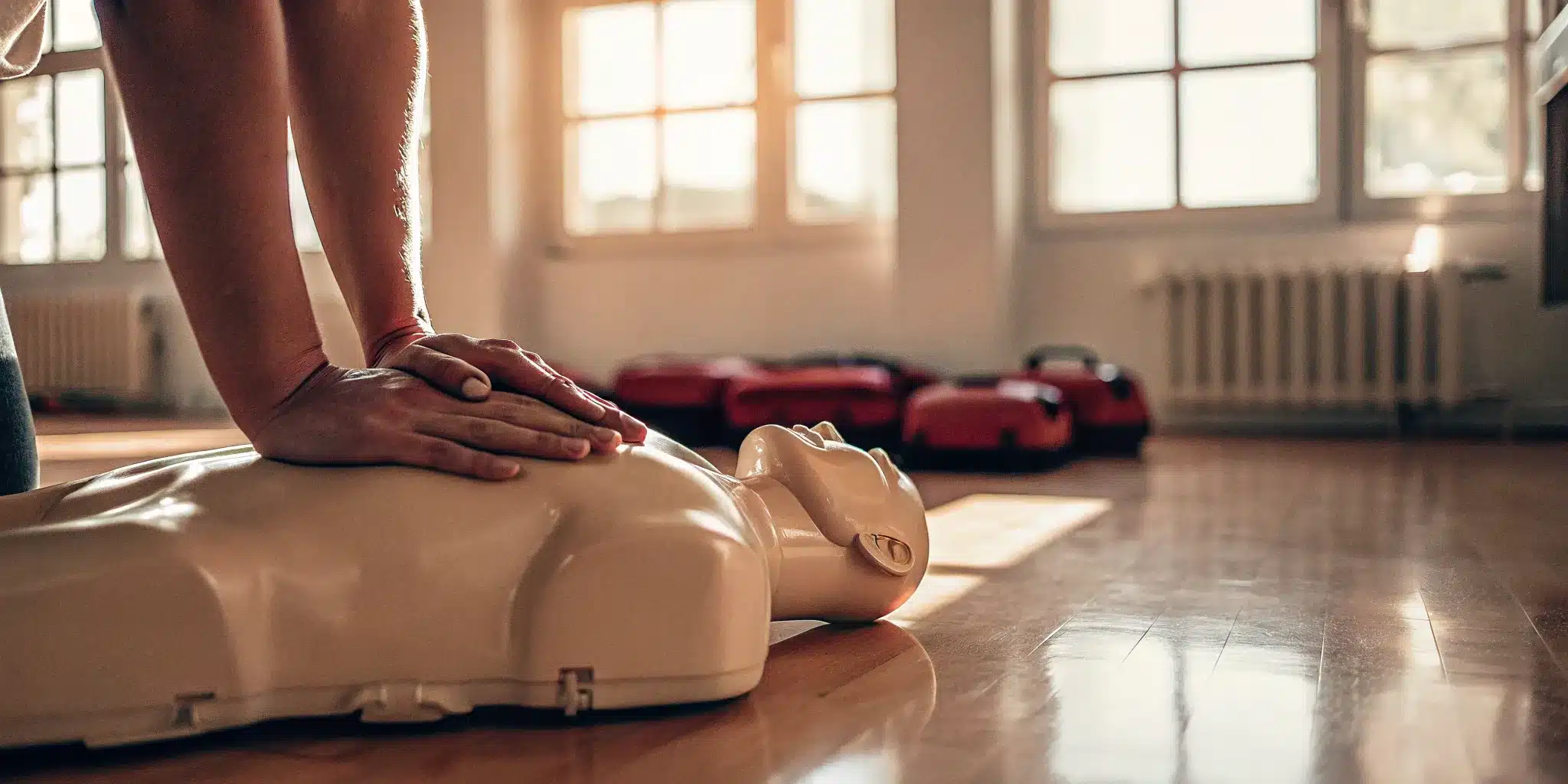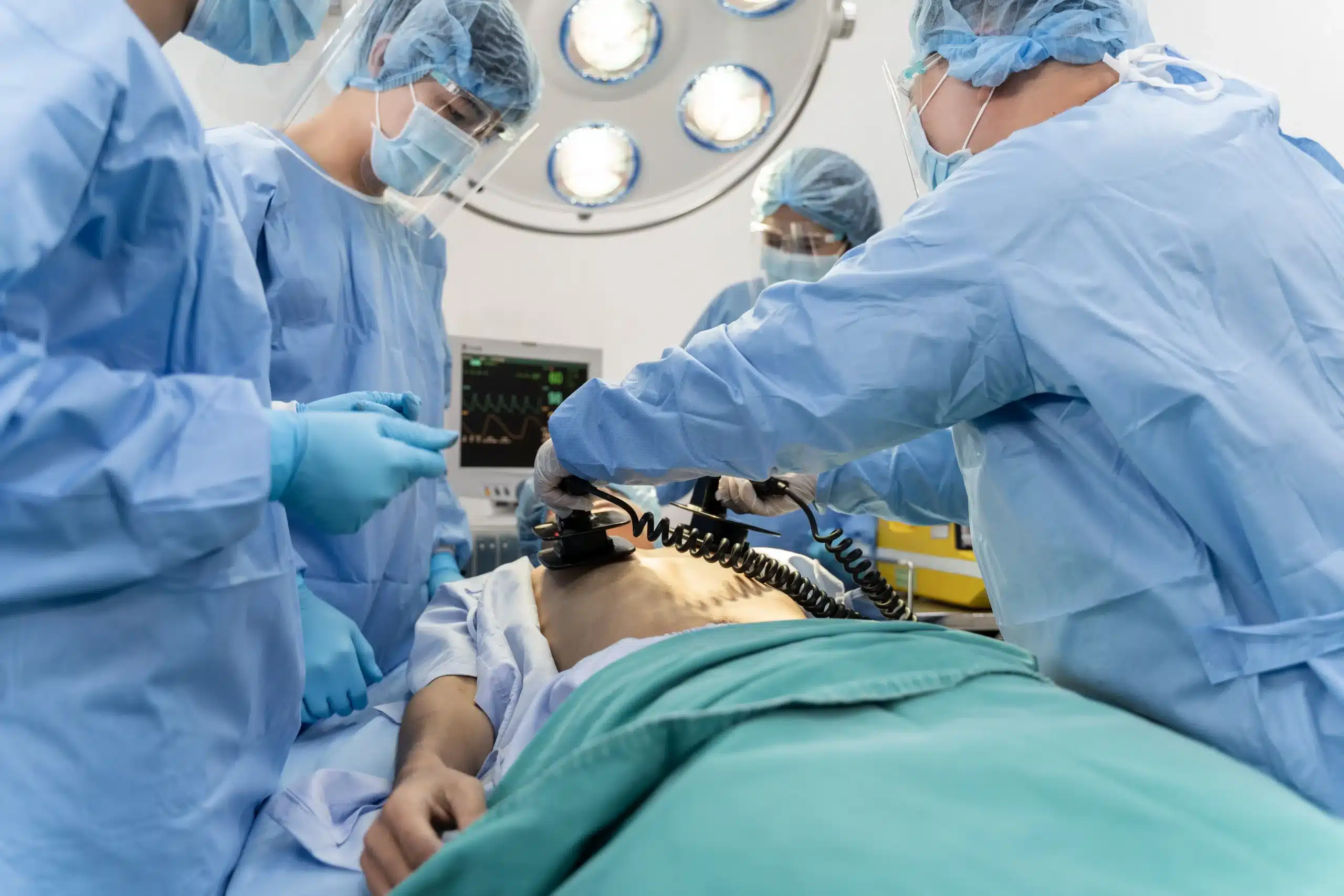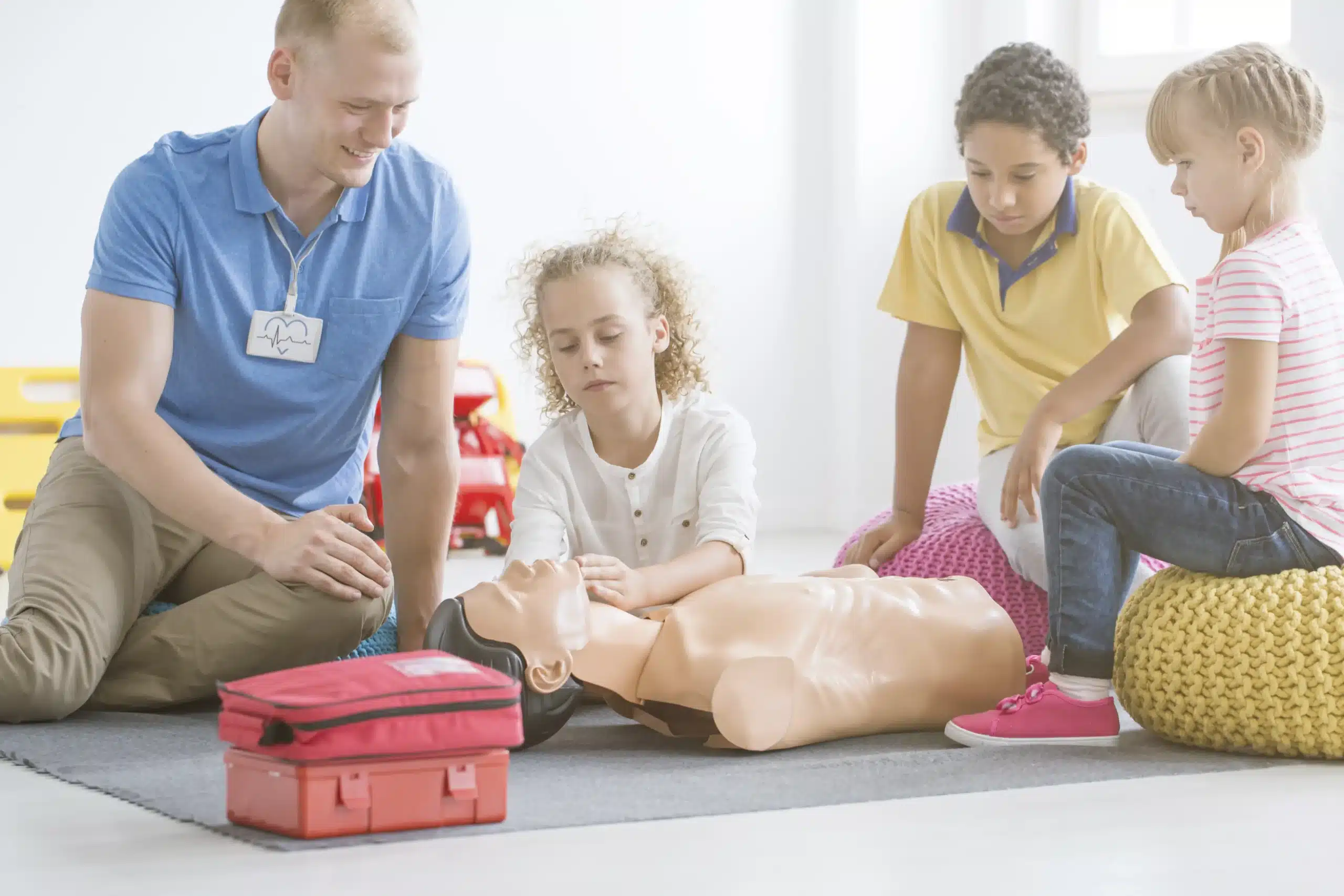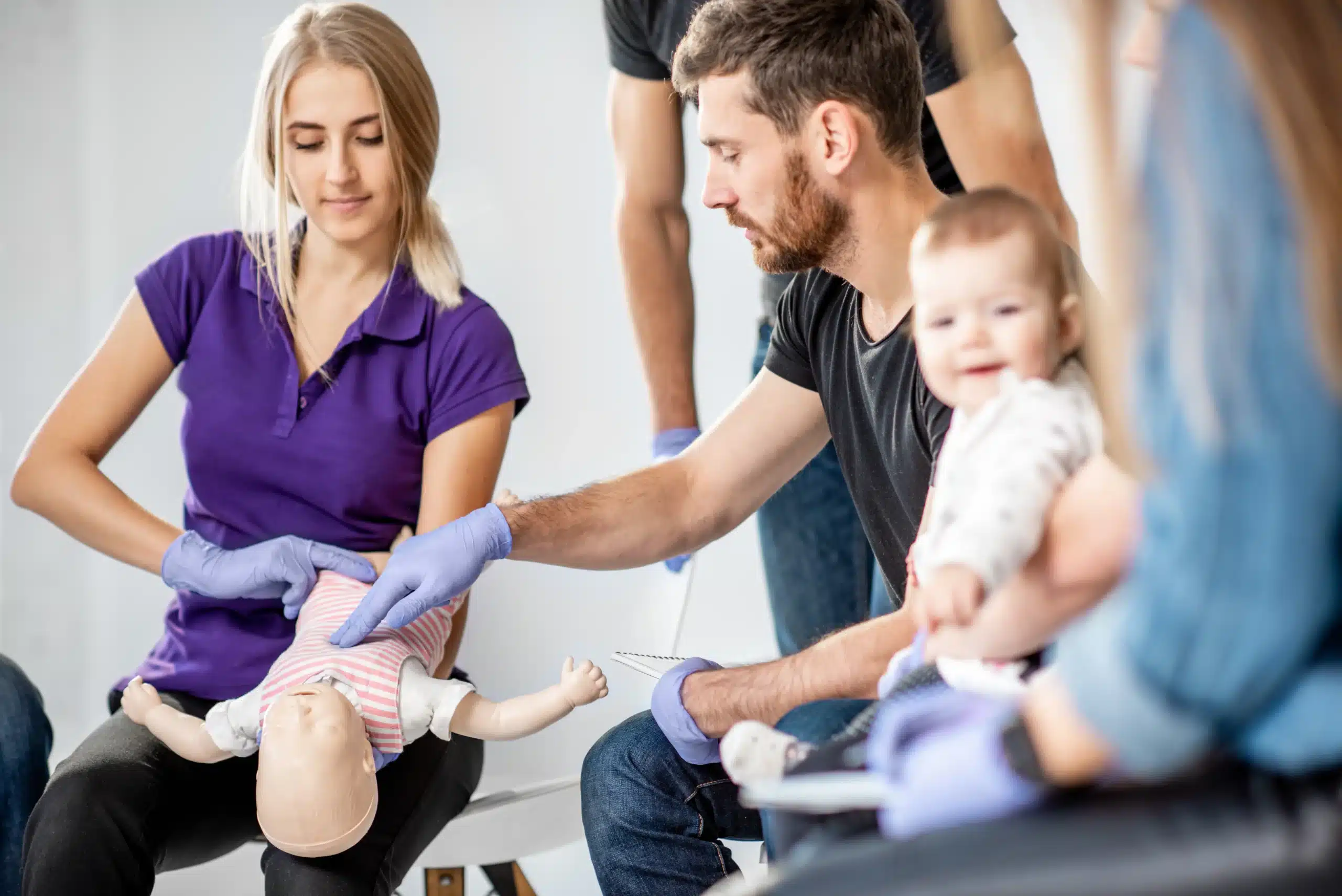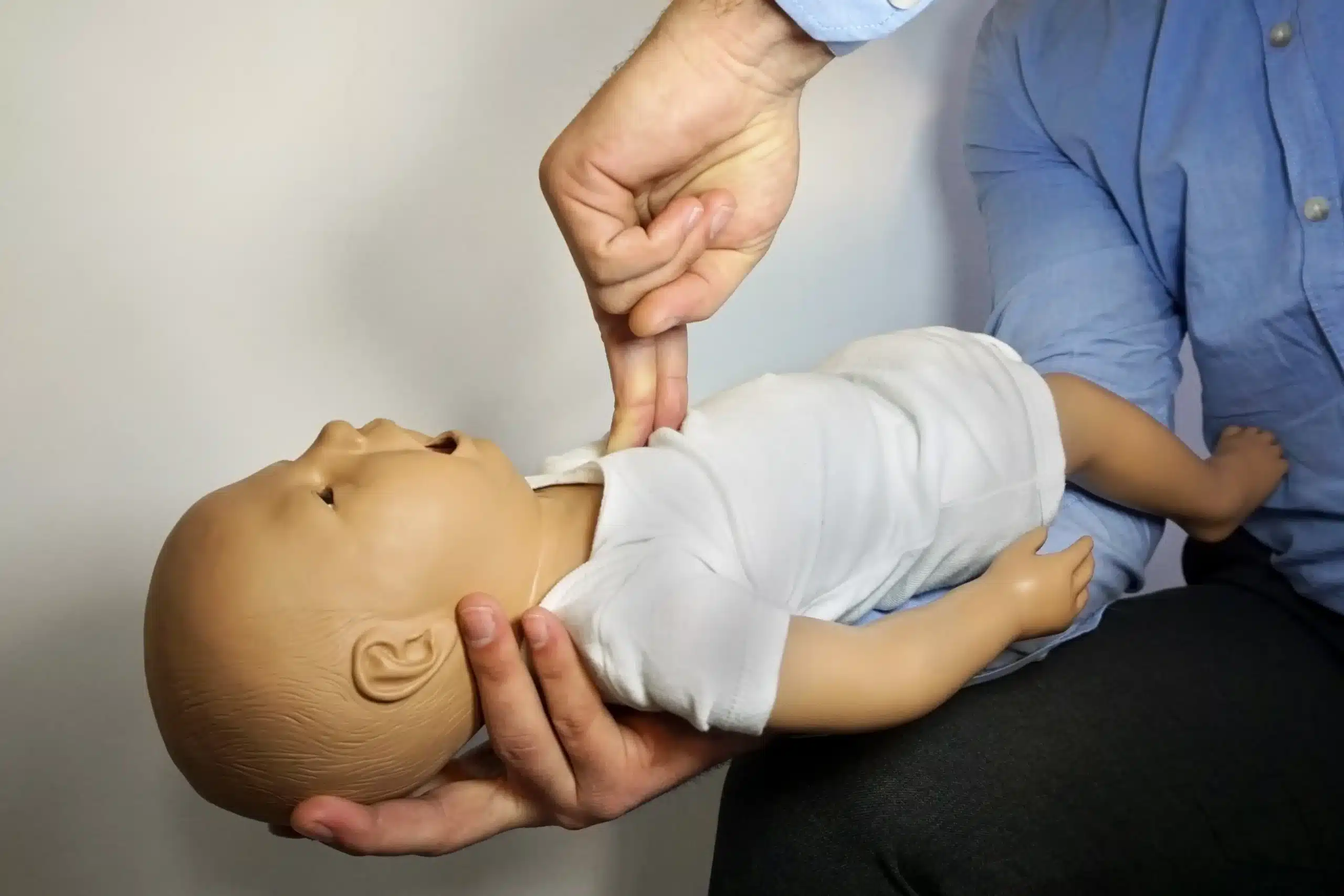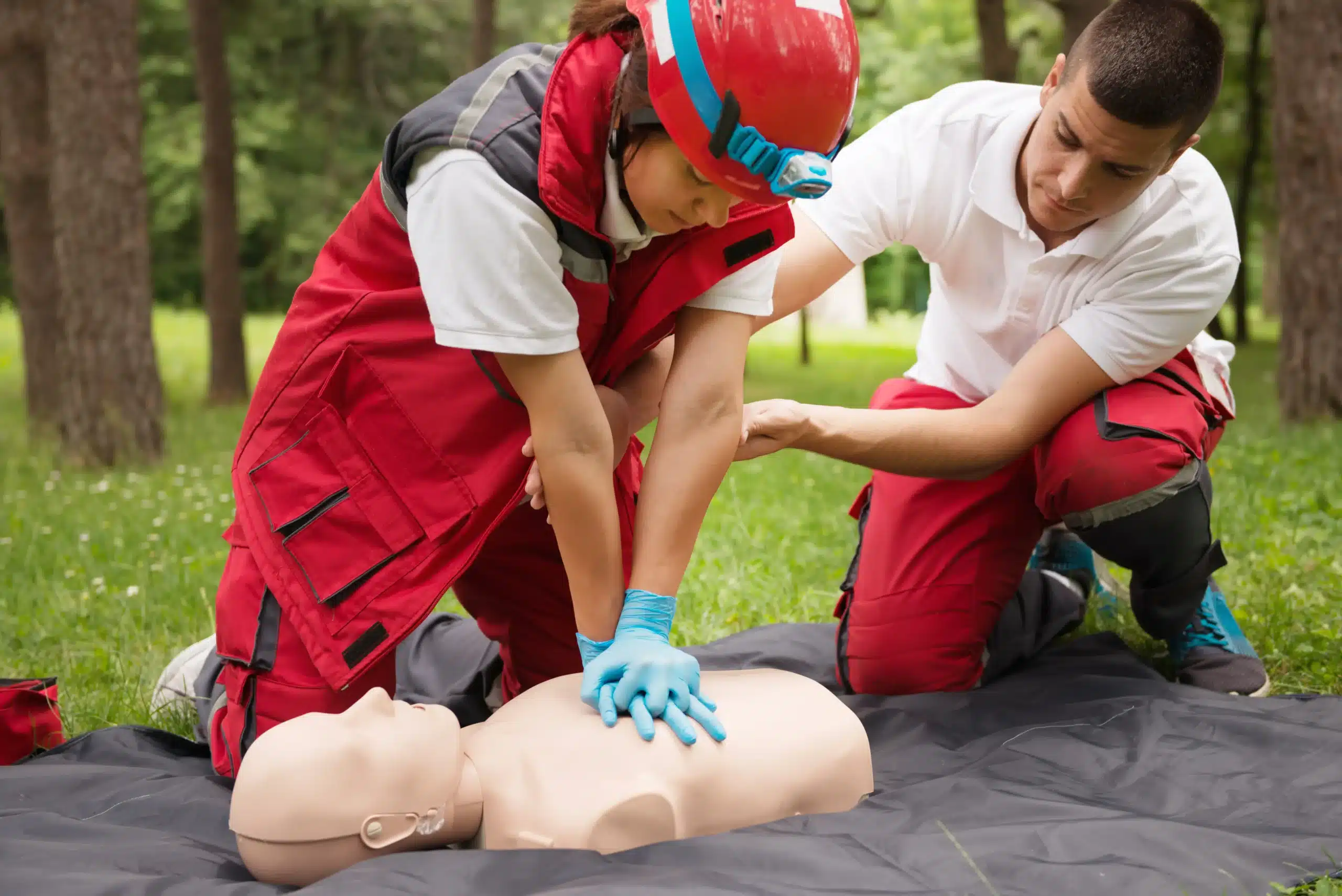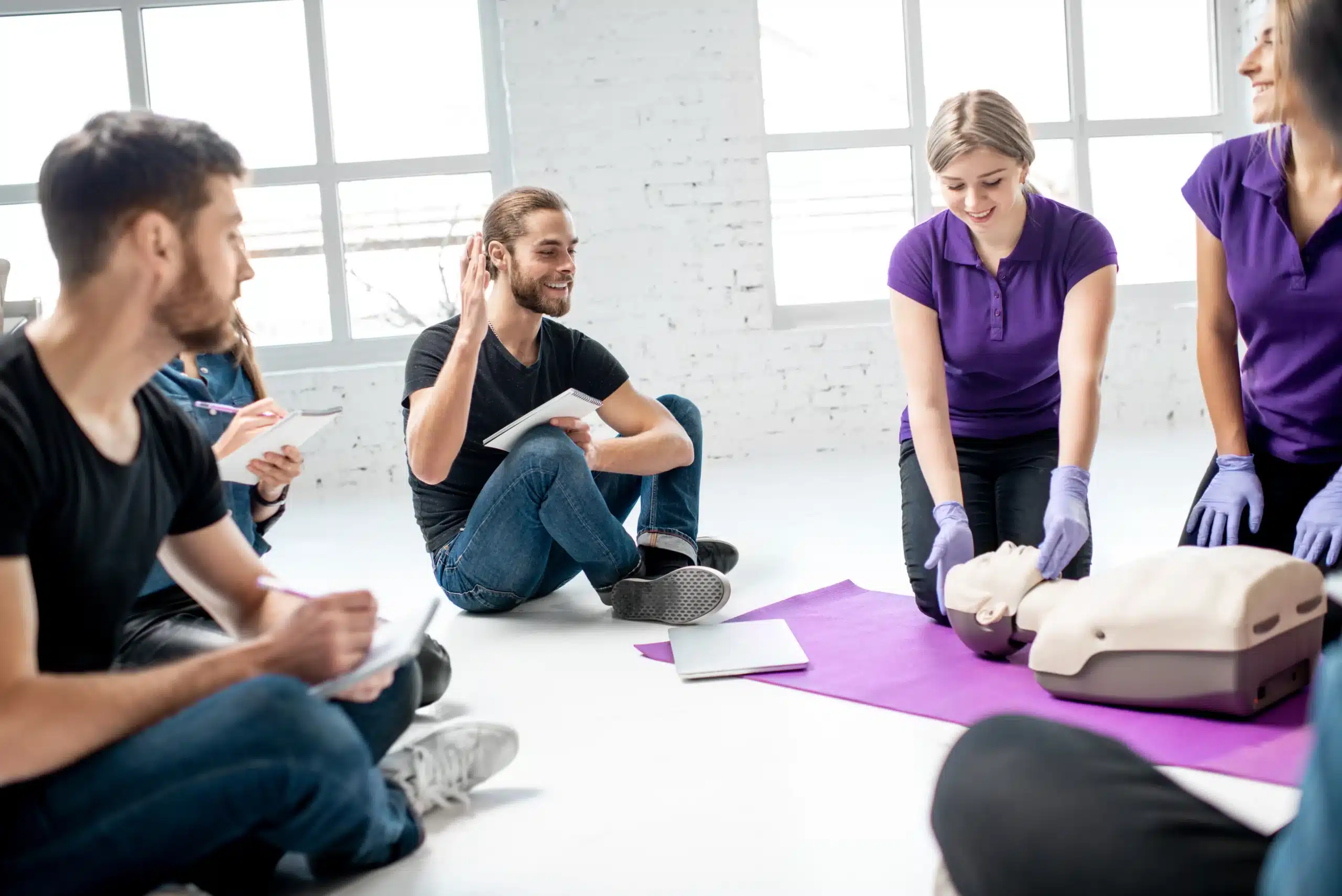Emergencies can happen unexpectedly, and knowing CPR can be the difference between life and death. CPR training in San Ramon provides you with the skills and knowledge to respond effectively in such critical situations. This guide will walk you through the various aspects of CPR training in San Ramon, including the different types of courses, where to find them, and what to expect during the training process. We’ll also discuss the costs involved, how to maintain your certification, and the numerous benefits of being CPR certified. Whether you’re seeking personal preparedness, career advancement, or simply the peace of mind that comes with being prepared, this guide will help you find the right CPR training in San Ramon to meet your goals.
Key Takeaways
- Find the right CPR training for you: Explore various certification levels, from basic CPR and First Aid to advanced options like BLS, ACLS, and PALS, to match your personal or professional goals in San Ramon. Convenient in-person, online, and blended learning formats are often available.
- San Ramon CPR Courses offers accessible, high-quality training: Benefit from AHA-certified courses, group discounts, a low-price guarantee, and convenient class schedules.
- Maintain your CPR skills for long-term effectiveness: Regularly renew your certification and consider ongoing education to stay up-to-date with the latest techniques and maintain your confidence in emergency situations.
What is CPR Training in San Ramon?
CPR training in San Ramon equips you with the skills to handle medical emergencies. These courses cover life-saving techniques like CPR, First Aid, and advanced methods such as Basic Life Support (BLS), Advanced Cardiovascular Life Support (ACLS), and Pediatric Advanced Life Support (PALS). Whether you’re a healthcare provider, a parent, or someone who wants to be prepared, CPR training gives you the confidence to act quickly and effectively in a crisis. San Ramon CPR Courses offers a variety of courses tailored to individual, group, and workplace needs. You’ll find a focus on practical skills applicable to real-life emergencies. For experienced instruction, providers like CPR Education offer training led by active firefighters. If you need convenient access, Heart Start CPR has classes in San Ramon and nearby cities like San Francisco and Oakland. Regardless of your background, CPR training in San Ramon empowers you to make a difference when it matters most.
CPR Courses: What’s Available?
Understanding your options for CPR training is the first step. Different courses cater to various needs and skill levels, from basic life support for everyday emergencies to advanced techniques for healthcare professionals. Let’s explore the key CPR certifications available in San Ramon.
Basic Life Support (BLS)
BLS certification provides the foundational skills needed to respond to life-threatening emergencies. You’ll learn how to perform CPR, use an AED, and relieve choking. BLS certification is suitable for healthcare providers, first responders, and anyone who wants to be prepared for emergencies. These courses cover essential techniques for adults, children, and infants.
Advanced Cardiovascular Life Support (ACLS)
ACLS training builds upon the fundamentals of BLS, focusing on advanced techniques for managing cardiovascular emergencies. This certification is crucial for healthcare professionals, including physicians, nurses, and paramedics. ACLS courses cover topics such as airway management, rhythm recognition, and pharmacological interventions. The American Heart Association’s Resuscitation Quality Improvement (RQI) program offers a modern approach to maintaining ACLS competence. Learn more about RQI classes.
Pediatric Advanced Life Support (PALS)
PALS certification equips healthcare providers with the specialized knowledge and skills needed to respond to emergencies involving infants and children. These courses cover pediatric assessment, resuscitation, and stabilization techniques. PALS certification is essential for pediatricians, nurses, and other healthcare professionals working with young patients.
First Aid & CPR
Combining first aid and CPR training provides a comprehensive approach to emergency preparedness. You’ll learn how to manage injuries, illnesses, and other medical emergencies, in addition to mastering CPR techniques. This combined certification is valuable for anyone who wants to be prepared for a wide range of situations, from minor cuts and burns to life-threatening cardiac events.
Top San Ramon CPR Training Providers
Finding the right CPR training provider is an important first step. Here are some organizations offering CPR certification courses in San Ramon:
San Ramon CPR Courses
San Ramon CPR Courses offers a range of American Heart Association (AHA) certifications, including BLS, ACLS, PALS, and CPR/First Aid. They focus on providing affordable and convenient options, with classes in San Ramon held at Bishop Ranch 1 and certification cards issued upon completion. Explore their CPR and First Aid training for more details. They also offer EMSA Child Care Health & Safety training for those working with children. For larger groups, consider their group discounts. San Ramon CPR Courses also offers a low price guarantee.
American Heart Association
While the AHA doesn’t directly conduct training, they set the standards for CPR education. Many training centers, including San Ramon CPR Courses, use their curriculum. The AHA’s Resuscitation Quality Improvement (RQI) program is a popular choice for healthcare professionals seeking BLS, ACLS, and PALS certification. San Ramon CPR Courses offers RQI classes using the AHA curriculum.
Red Cross
The Red Cross is another well-known provider of CPR and First Aid training. Visit the Red Cross website to find classes offered in the San Ramon area. Their site allows you to search by zip code and find courses that fit your schedule.
Heart Start CPR
Heart Start CPR provides online and on-site CPR training in San Ramon and the surrounding Bay Area. They offer various courses, including CPR, First Aid, BLS, ACLS, and PALS. Visit the Heart Start CPR website for information on their courses and schedules.
CPR Education
CPR Education offers CPR and First Aid classes in San Ramon for individuals and businesses. Their instructors are active firefighters, bringing real-world experience to the classroom. Learn more about CPR Education in San Ramon.
CPR Training Costs & Discounts
CPR training is an investment in yourself and your community. Understanding associated costs and available discounts helps you find a program that fits your budget. Let’s break down typical expenses and ways to save.
Standard Course Fees
CPR course fees vary based on the certification level. Basic Life Support (BLS) classes are generally less expensive than more advanced courses like Advanced Cardiovascular Life Support (ACLS) or Pediatric Advanced Life Support (PALS). Check directly with training providers like San Ramon CPR Courses for current pricing. They offer a range of American Heart Association certification courses, including BLS, ACLS, and PALS, in San Ramon.
Group Discounts
If you’re training a group, like coworkers or community members, explore group discounts. Many CPR training providers, including San Ramon CPR Courses, offer reduced rates for group bookings. This is a cost-effective way to ensure everyone gets certified together.
Student Discounts
Students often qualify for discounted rates on CPR training. While specific information on student discounts for CPR training may be limited, always inquire directly with providers like San Ramon CPR Courses. They may have options available or can direct you to resources for students in the San Ramon, Dublin, and Danville areas.
Low Price Guarantee
Look for training providers that offer a low-price guarantee. San Ramon CPR Courses offers this, ensuring you’re getting good value for your training. They also provide the popular American Heart Association RQI program, a streamlined way for healthcare professionals to maintain their certifications. This commitment to affordability makes quality CPR training accessible.
Choose Your CPR Training Format
Finding the right CPR training format is key to learning effectively and feeling confident in your skills. Let’s explore the options available in San Ramon: in-person, online, and blended learning. Each has its own advantages, so consider what best suits your learning style and schedule.
In-Person Classes
In-person CPR training offers hands-on learning and direct interaction with your instructor. This format allows you to practice skills in real-time and receive immediate feedback. Heart Start CPR offers a range of onsite training, including CPR, First Aid, BLS, ACLS, and PALS in San Ramon and surrounding areas. CPR Education emphasizes the value of learning from active firefighters in their CPR and First-Aid classes. This direct interaction can be invaluable for building confidence and mastering essential techniques.
Online Courses
Online CPR certification provides flexibility for busy schedules. You can learn at your own pace and complete the coursework when it’s convenient. However, it’s crucial to choose a reputable provider offering certification from recognized organizations like the American Heart Association (AHA) or the American Red Cross (ARC). These certifications are widely accepted and often required for certain jobs. For more information, this article addresses frequently asked questions about online CPR training.
Blended Learning
Blended learning combines online convenience with the practical application of in-person training. You’ll complete the coursework online, then attend an in-person session for hands-on practice and skills assessment. Bay Area CPR explains how this blended approach streamlines learning and can make it less intimidating. It’s a great way to benefit from both flexible online learning and essential hands-on experience.
What Happens in CPR Training?
CPR training equips you with the skills and knowledge to respond effectively during cardiac emergencies. Let’s break down what you can expect during a typical CPR training course.
Course Duration and Content
CPR training courses in San Ramon, like those offered by San Ramon CPR Courses, cover essential life-saving techniques. You’ll learn how to recognize the signs of a cardiac arrest, perform chest compressions, provide rescue breaths, and use an automated external defibrillator (AED). These courses align with American Heart Association guidelines, ensuring you receive up-to-date training. Depending on the specific course—BLS, ACLS, or PALS—content will be tailored to adult, child, and infant care. For more details on CPR and First Aid certification, visit the San Ramon CPR Courses website. They also offer specialized training like the EMSA Child Care Health & Safety program.
Hands-On Practice
CPR training isn’t just about lectures and videos. A significant portion involves hands-on practice with mannequins to simulate real-life scenarios. This allows you to develop muscle memory and confidence in performing CPR, crucial for effectively administering CPR under pressure.
Certification Process
Upon successful completion of the course and skills testing, you’ll receive your certification card, valid for two years. San Ramon CPR Courses often issue these cards the same day, streamlining the process.
Flexible Scheduling
Recognizing busy schedules, CPR training providers offer flexible options, including weekday and weekend classes, and online or in-person formats. This makes it easier to fit training into your life. Check with providers like San Ramon CPR Courses for their schedule and course availability. They offer various options to accommodate different needs. For specialized resuscitation training, explore their RQI classes.
Meet Your CPR Instructors
When you choose CPR training in San Ramon, you’re not just learning a life-saving skill—you’re learning from the best. Our instructors bring a unique blend of real-world experience and a passion for teaching, creating a dynamic and supportive learning environment.
Professional Backgrounds
Your CPR instructors aren’t just teachers; they’re active professionals in the emergency response field. Many are current firefighters, paramedics, or EMTs, meaning they bring firsthand experience to the classroom. This practical knowledge translates into relevant training scenarios and a deeper understanding of how to apply CPR techniques effectively under pressure.
AHA Certifications
All our instructors hold certifications from the American Heart Association, a globally recognized leader in CPR and emergency cardiovascular care. They are qualified to teach a range of AHA courses, including Basic Life Support (BLS), Advanced Cardiovascular Life Support (ACLS), and Pediatric Advanced Life Support (PALS). This ensures you receive high-quality training that meets the latest industry standards and best practices. Upon successful completion of your CPR course, you’ll receive an AHA certification card, validating your skills and knowledge.
Emergency Response Experience
Beyond their certifications, our instructors often incorporate their personal experiences from the field into their teaching. They can offer unique insights into real-life emergency situations, providing context and practical advice that goes beyond textbook learning. This focus on real-world application helps students develop the confidence and critical thinking skills necessary to respond effectively in a crisis. For those interested in broader emergency preparedness, consider our group discount options for Community Emergency Response Training (CERT), equipping you with the skills to assist your community during various emergencies.
Why Get CPR Certified in San Ramon?
Getting CPR certified isn’t just about acquiring a skill; it’s about empowering yourself and contributing to a safer community. Whether for personal growth, professional development, or simply the peace of mind that comes with being prepared, CPR certification offers numerous benefits. Here’s why you should consider getting CPR certified in San Ramon:
Personal Preparedness
Emergencies can happen anytime, anywhere. Equipping yourself with CPR and first-aid skills through local training gives you the confidence to respond effectively. Knowing how to administer CPR and first aid can make a critical difference in the moments before professional help arrives. This training empowers you to protect yourself, your loved ones, and even strangers. It transforms you from a bystander into a potential lifesaver.
Career Advancement
For healthcare professionals and those aspiring to medical careers, CPR certification is often a prerequisite. The American Heart Association’s RQI program offers a streamlined path to BLS, ACLS, and PALS certifications, essential credentials in the healthcare field. These certifications demonstrate your commitment to patient safety and can significantly enhance your career prospects. Staying current with the latest resuscitation techniques also shows your dedication to providing high-quality care.
Community Safety
CPR-trained individuals create a safety net within their communities. By taking a CPR class, you become a valuable resource, ready to assist in emergencies at home, work, or in public spaces. This widespread preparedness strengthens the community’s ability to respond to medical crises and potentially save lives.
Emergency Confidence
Beyond the technical skills, CPR training instills a sense of confidence and control in emergency situations. Student testimonials often praise the effectiveness of hands-on training in a supportive learning environment. This confidence empowers you to remain calm and take decisive action when faced with a medical emergency, increasing the chances of a positive outcome.
Keep Your CPR Certification Current
Knowing CPR is a valuable skill, but it’s not something you learn once and forget. Staying up-to-date is essential for providing effective help during emergencies. This section covers what you need to know to keep your CPR skills sharp.
Renewal Requirements
CPR certifications are typically valid for two years. To maintain your credentials and ensure your skills are current, you’ll need to retake the course and get recertified. This usually involves a refresher course covering core concepts and techniques. Check your card’s expiration date and schedule your renewal ahead of time. CPR guidelines and best practices can change, so staying current is crucial for delivering effective care. For more information on CPR certification, check out resources like CPR For Employment.
Continuing Education
Even if your certification isn’t expiring soon, consider participating in continuing education. Regular practice and exposure to new developments in emergency care can significantly improve your confidence and effectiveness in real-life situations. Providers like Heart Start CPR offer ongoing training and resources to help you stay at the top of your game. They emphasize the importance of consistent learning to maintain sharp skills and knowledge of the latest techniques. You can also find additional resources and training options through the American Heart Association.
Latest Techniques
Emergency care procedures are constantly evolving. Staying informed about the latest techniques is essential for providing the best possible care. For example, recent guidelines from the American Heart Association emphasize compression-only CPR as the preferred method for many situations. While traditional CPR involves rescue breaths, compression-only CPR focuses solely on chest compressions, simplifying the process and potentially improving outcomes. Familiarizing yourself with these updates ensures you’re prepared to use the most effective methods in an emergency. Check out resources like Safety Training Seminars to learn more about current CPR best practices.
CPR Training FAQs
We understand you might have some questions about CPR training. Here are answers to some common queries:
Physical Requirements
CPR can be physically demanding. While you don’t need to be an athlete, the training involves performing chest compressions and other physical maneuvers. If you have any physical limitations, discuss them with your instructor beforehand. They can offer modifications or guidance to help you successfully complete the training.
Online Certification Validity
Yes, online CPR certification can be valid. The key is to ensure your certification comes from a recognized organization like the American Heart Association (AHA) or the American Red Cross (ARC). Always double-check the provider’s legitimacy before signing up. Our courses meet these standards, providing nationally recognized certification.
Course Difficulty
Our CPR courses are designed to be straightforward and accessible. Student feedback consistently highlights the supportive learning environment created by our knowledgeable instructors. We focus on building confidence and ensuring you feel comfortable performing CPR in real-life situations. For healthcare professionals seeking to maintain their resuscitation skills, we offer RQI courses.
Post-Training Support
We’re committed to your success even after you complete your training. Our program offers ongoing support and flexible rescheduling options. We want you to feel fully prepared to use your skills, so reach out if you have questions or need assistance. We also offer group discounts and a low price guarantee.
Related Articles
- CPR & First-aid Classes in San Ramon, CA – San Ramon CPR Classes
- BLS CPR Classes in San Ramon, CA – San Ramon CPR Classes
- AHA ACLS Classes in San Ramon, CA – San Ramon CPR Classes
- AHA PALS Classes in San Ramon, CA – San Ramon CPR Classes
- Northern CA CPR Directory – San Ramon CPR Classes
Frequently Asked Questions
What if I have physical limitations? Will I still be able to perform CPR? CPR does require a certain level of physical exertion. Talk to your instructor before class if you have any concerns about your physical abilities. They can often suggest modifications to certain techniques so you can still participate fully and learn to perform CPR effectively.
Are online CPR certifications accepted? Absolutely, as long as they come from a reputable organization like the American Heart Association (AHA) or the American Red Cross (ARC). Always confirm the certifying organization’s credentials before registering for an online course. Our online courses meet these standards, so you can be confident your certification will be widely accepted.
How challenging are the CPR courses? Our courses are designed to be clear, comprehensive, and supportive. We prioritize building your confidence so you feel prepared to use your skills in a real emergency. Our instructors are skilled at creating a positive learning environment where you can ask questions and practice comfortably.
What kind of support is available after I finish the course? We offer continued support and are happy to answer any questions that may come up after your training. We also understand that schedules change, so we offer flexible rescheduling options. Our goal is to ensure you feel completely comfortable and confident using your new CPR skills.
What if I can’t afford the cost of CPR training? We believe everyone should have access to this life-saving training. We offer a low price guarantee and group discounts to help make our courses more affordable. Contact us to discuss options and see if you qualify for any discounts.
This article was written for free by MEGA SEO.
